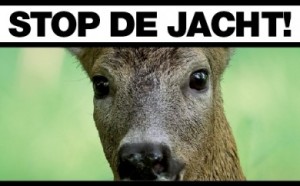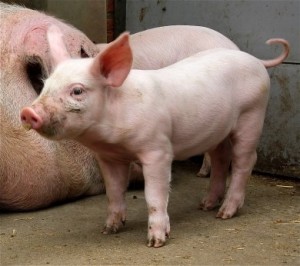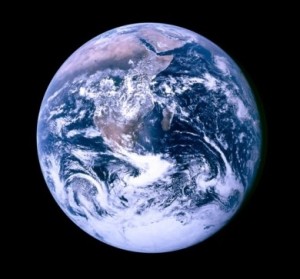وورلد لوكالاسبوع46 ـ 2014
أجل! سنشارك السنة المقبلة في مارس/آذار 2015 في عشرة محافظات أثناء الإنتخابات الجهوية. وتوجد في هولندا إثنا عشرة محافظة وأنا فخورة بأن لنا في عشرة منها مرشحين جيّدين يتجرأون الخوض في مغامرة الدفاع عن الحيوان، الطبيعة والبيئة. كذلك تم تجميع قوائم المرشحين لثمانية مجالس المياه ( الهيئة الرئاسية الهولندية لإدارة المياه ) وستجرى كلا الإنتخابات في نفس اليوم.
منذ انتخابات عام 2011 أصبح لحزبنا ممثل برلماني في سبعة محافظات. بالطبع نحن الآن نطمح إلى العشرة. ونأمل بالتالي تزايد عدد ممثلينا بكل جهة على حدى. ويبدو أن هناك فرصة جيدة بصناديق الإقتراع.
إنه لمن المهم جدا مشاركتنا في هذه الإنتخابات، لأن العديد من القرارات في المحافظة تمس مباشرة الحيوان، البيئة والطبيعة. القضايا الإقليمية مهمة جدا بالنسبة لنا مثل صيد المتعة، المحافظة على الطبيعة والإسطبلات الضخمة.
بالإضافة إلى ذلك يجري في هولندا تغيير تشريعي من شأنه وضع مصير مليونين من الحيوانات التي تسقط ضحية طلقات نار هواية الصيد، كليا بزمام المحافظات. سياسة الحياة البرية بالمحافظات حتى الآن تضم أي شيء ما عدا الرفق. حزب قوي للدفاع عن حقوق الحيوانات يمكنه وضع نهاية لذلك!
ولاتزال قوائم المرشحين وبرنامج الإنتخابات في انتظار المصادقة عليها لمؤتمرنا في الثلاثين من شهر نوفمبر/تشرين الثاني.
وأخيرا وضعت نهاية لبتر ذيل الخنازير 🙂 أغلبية الغرفة أيّدت تدخّلنا بهذا الموضوع. نحن نريد من الحكومة أن تضع تاريخا محدّدا لوضع نهاية مطلقة لبتر ذيل الخنازير. وبالتالي يمكن للخنازير الإحتفاظ بذيلها الملتوي والتخلص من عذاب ألم القطع.
وقد تم منع بتر ذيل الخنازير في هولندا منذ سنة 1996، ولكن يُسمح بذلك حتى لا تعض الخنازير ذيول بعضها، على حسب ما يدّعى. وتوجد حاليا استثناءات واسعة لهذا الحظر بموجب ” الإعفاء العام “. الخنازير تعيش في حظائر مكتظة للغاية داخل قضبان حديدية، في بيئة قذرة لا تتضمن أي مسليات. ذلك يوفر درجة عالية من التوتر والملل فتصبح الخنازير عنيفة تعتدي على بعضها البعض وتعض ذيول بعضها.
تريد هذه الحكومة ترك الأمر لقطاع الماشية عندما يتم احترام حظر بتر الذيل كليا. لحسن الحظ هناك تهديدات للحصول على ذلك! لأنه أمر ضروري للغاية.
كان هناك المزيد من النجاح خلال هذا الأسبوع؛ لقد اعتُمد اقتراحنا بوضع قواعد تنظيم المراعي لكل الماشية في هولندا.
في نهاية الإسبوع المنفرط نظمت الهيأة السياسية للحيوان ( المؤسسة الدولية لحزبنا ) اجتماعا في بلغراد ( صربيا ) لكل الأحزاب لأجل الحيوانات بكل أنحاء العالم بهدف تبادل أفضل الممارسات للوصول إلى حزب من أجل الحيوانات ناجح. المزيد في هذا الموضوع في وورلدلوگ الأسبوع القادم!
تحياتي! ماريان
Yes! In March 2015, we will participate in the provincial council elections in 10 provinces. The Netherlands has 12 provinces in total and I am proud that we have found good candidates in 10 of them, who dare to take up the challenge to stand up for animals, nature and the environment. And we have also drawn up lists of candidates for eight Water Authorities (Dutch administrative body for water management). Both elections take place on the same day.
Since the elections of 2011, our Party has had a seat in seven provincial councils. And of course, we are now going for ten of them! Obviously we also hope to increase our number of representatives per province. Looking at the polls, there’s a good chance that we will.
It’s very important to us to participate in these elections because much decision-making in the provinces immediately affects animals, nature and the environment. For example, pleasure hunting, nature conservation and mega-stalls are important regional topics to us.
Furthermore, there will be an amendment to the law in the Netherlands, which will put the fate of two million animals that are annually threatened by amateur hunters, into the hands of the provinces. The fauna policy of provinces has been far from animal-friendly until now. A powerful Party for the Animals can put a stop to that!
The lists of candidates and the election programme are at the approval of the Congress on 30 November next.
Finally a stop to the docking of piglets’ tails! 😉 A majority of the House of Representatives has seconded our motion on this. We want the government to set a final date to stop the docking of piglets’ tails for good. Pigs will fortunately then be allowed to keep their crumpled tail and are saved from painful tail docking.
The docking of pigs’ tail has been banned in the Netherlands since 1996, but this prohibition may be deviated from when pigs bite off each other’s tails. Currently, this prohibition is massively deviated from on the basis of a “general release”. Piglets have to live in overcrowded pens, in a bad climate and without distraction. This causes distress to them and makes them bored, which results in biting off each other’s tails.
This Parliament wanted to leave it up to the livestock industry to decide when to start respecting the prohibition on the docking of tails. Fortunately there now is a big stick, which is certainly needed right now.
And more successes this week; our motion has been adopted to regulate pasturing for all cows in the Netherlands.
Also our motion for sustainable education was seconded. A large majority of the House of Representatives finds it necessary that attention is paid to animals, nature and the environment to reach a habitable planet and a green economy! Research is now conducted into how sustainability can become an integral part of education.
Last week, the Animals Politics Foundation (the international foundation of our Party) held a gathering in Belgrade (Serbia) for all parties for the animals worldwide so that they could exchange best practices in order to become successful animal rights parties. I will tell you more about this in next week’s Worldlog!
Greetings, Marianne


